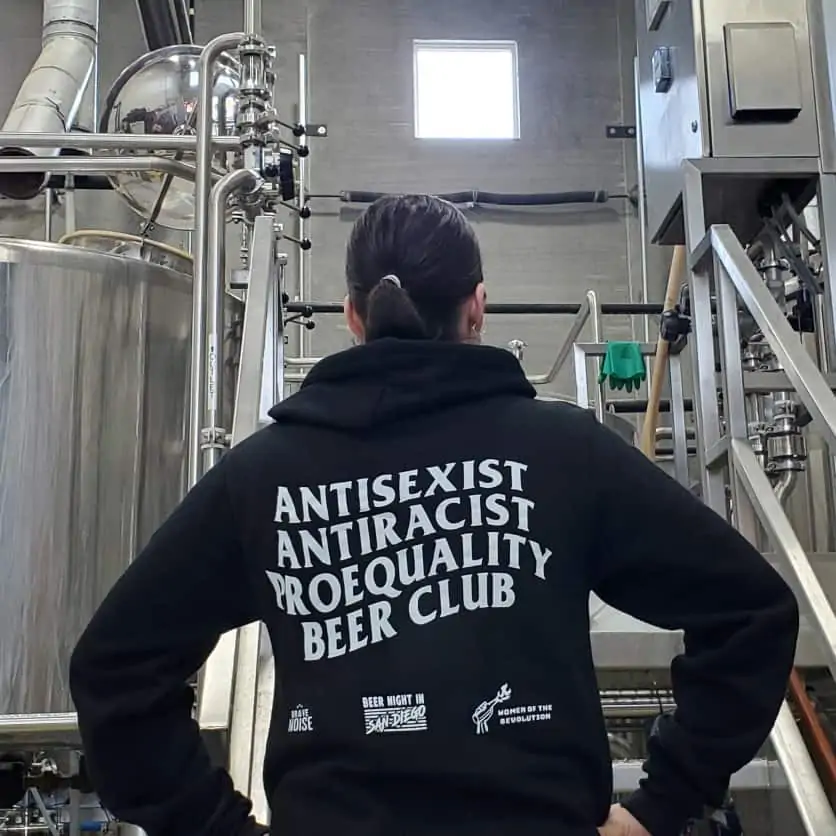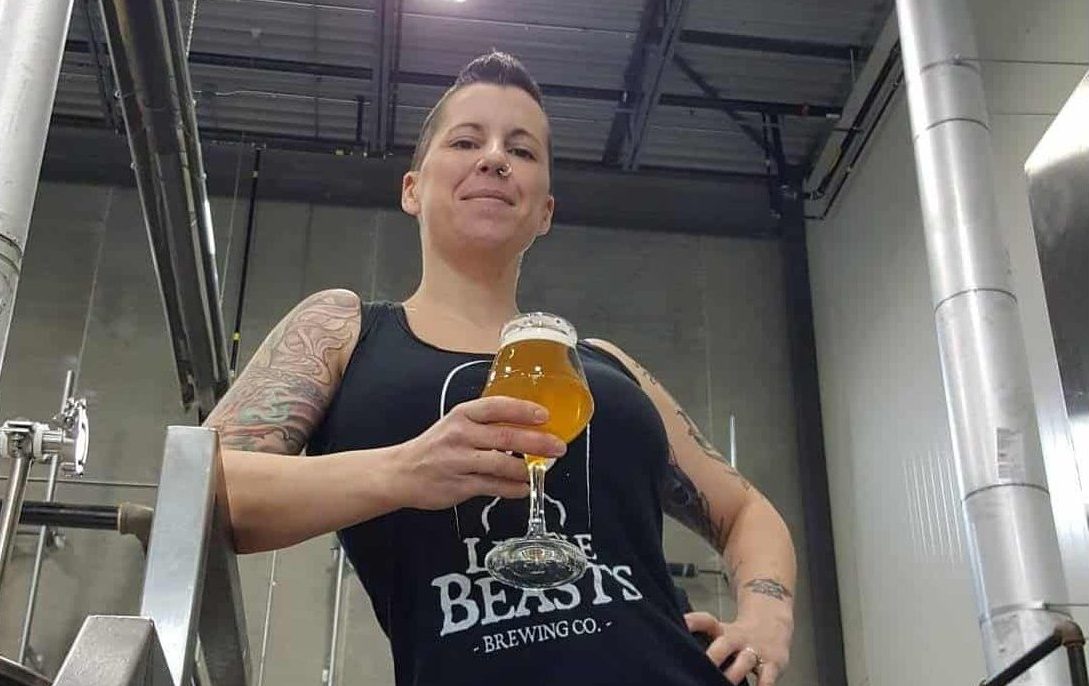Abuse and sexual assault in craft beer industry leads to threats against Whitby whistleblower
Published March 4, 2022 at 8:40 am

She’s been called every name imaginable; her business and her character have come under attack and she has been threatened so often she has her own personal troll list. And all because she made a little brave noise by exposing incidents of abuse and sexual assault in the craft beer industry for the whole world to see.
Erin Broadfoot is the owner and head brewer of Little Beasts Brewing in Whitby and was a full participant last May when a question asked on Instagram by Brienne Allan (@ratmagnet), a brewer and production manager at Notch Brewing in Salem, Massachusetts – “Have you ever experienced sexism in the beer industry?” – was answered by a deluge of individual stories of abuse, discrimination and assault, all shared on Allan’s Instagram page.
Most of the stories were American experiences but there was plenty of Canadian content as well, and one of those who shared was Broadfoot, who has long been an outspoken advocate of a beer scene free of racism, misogyny and homophobia.
Allan’s stories rocked the industry but as the momentum began to lose steam late last year, Broadfoot took it upon herself to in late January to keep it in the spotlight by sharing stories of abuse on her own Instagram page, @esbroadfoot.
The result was an outpouring of pent-up anger, grief and revulsion by people who work in the beer industry (or were forced to leave because of the abuse), with stories shared about discrimination, abuse and even rape, often graphically re-told by the victims.
The campaign went on full steam for about two weeks, with hundreds of tales told, mostly anonymously by women afraid they would lose their job in an industry still dominated by white, cisgender males.
The stories are still being told, in fact, because the campaign is open-ended. If you still have a story to tell, Erin Broadfoot has the platform for you to share it.
Back in January, however, Broadfoot wasn’t expecting a revolution. She wasn’t sure she would hear many stories at all.
“I was worried that people wouldn’t feel safe coming forward,” she said, adding that the vast majority of the stories were anonymous and there were also many that were shared privately but never became a public post. In an industry that is “heavily white-washed and male dominated” it makes it too easy to identify those who share, she explained.
“The industry needs a lot of work. When you take any industry that is predominately run by straight white males you’re going to have problems,” she said. “And when you have an industry where you have cheap labour, poor worker rights and alcohol, and where shitty behaviour is glorified, marginalized populations are going to suffer the most.”
Many of Ontario’s most breweries were called out for poor behaviour or worse during the social media campaign. Some have taken the criticism well and have promised to do what it takes to make their brewery welcome to all. Others have battened down the hatches and pretended the incident or incidents never happened. Others still have responded to the allegations in ways that “horrified” those following along, including Broadfoot.

Erin Broadfoot, Little Beasts Brewing
“I just want accountability,” she said. “But with a few breweries with track records … I feel like there’s no coming back from that.”
Indurham sat down with Broadfoot recently for a chat about her Instagram campaign and what changes she would like to see in the craft beer world – an industry that was once famously described as “99 per cent asshole-free.”
Indurham: There were a lot of supporters for some of the breweries called out, in spite of what they were reading in the stories. “I don’t care, as long as the beer is good.” Reminds me of athletes expressing an opinion on social or political issues and told to “stick to sports.” How do we combat this?
ERIN: People simply need to drop the selfishness and start caring about those around them. It’s not the marginalized populations saying, “I don’t care,” it’s the privileged populations (there’s always an outlier, but the point stands). If all parties don’t feel welcome than not everyone can just ‘stick to sports,’ only those with privilege and ability. Which should not be tolerated by any of us.
Indurham: Have the responses surprised you? Alarmed you? Does it show we’re a long way from ‘Believe women?’
ERIN: No, they don’t surprise me. Sure, they alarm me, but it’s also nothing new to me. We are an incredibly long way from believing women, and trans folk, and queer folk, and Black people, and Asian people and on and on and on. If people believed the shock wouldn’t have been so extreme, because everyone would have already known. We have huge issues with disbelief. I had tonnes of comments in the back end doubting everything that was said, even though most stories are cross verified numerous times. I had hundreds of stories shared with me – one was possibly suffering from a touch of fabrication. Everyone loves to focus on the one potentially false story to disprove the hundreds and thousands of real stories. We have a long way to go still.
Indurham: Do you believe there is a good core at the heart of Ontario’s craft beer industry?
ERIN: I think there are great people in craft beer, I think there are great breweries. I also think there is a mountain of toxicity ruining it for many. I see a great future for this industry, if we dig in and do the work now to create safety and accountability.
Indurham: What do you want the industry to look like in ten, fifteen years?
ERIN: In 10 or 15 years I want to see diversity. I want to see people from all walks of life welcome. I want to see beer brands on the shelves that speak to populations other than those that are white and mainly male. I want women to be able to go to beer festivals and not have to worry about being drugged and assaulted. This is actually a very wide question that can be broken down into many parts. The wide answer is that I would like to see all marginalized populations feel safe and welcome. It shouldn’t be a big ask, but it definitely seems to have been.
Indurham: What was the blowback like? You, and your business were threatened. I know the real bravery came from those sharing the stories but it still took a lot of courage to do this. On a personal level, was it worth it?
ERIN: The blowback has been extreme, but this isn’t my introduction to advocacy work. I’ve been here before, just maybe not to this degree. I’m dealing with really high levels of harassment. Negative reviews on social media and google. Personal slander, trolling on my business and personal accounts. As well as the occasional violent threat on myself and/or my business. Everyone has power behind a keyboard though, it’ll die off. I have no regrets.
INdurham's Editorial Standards and Policies




